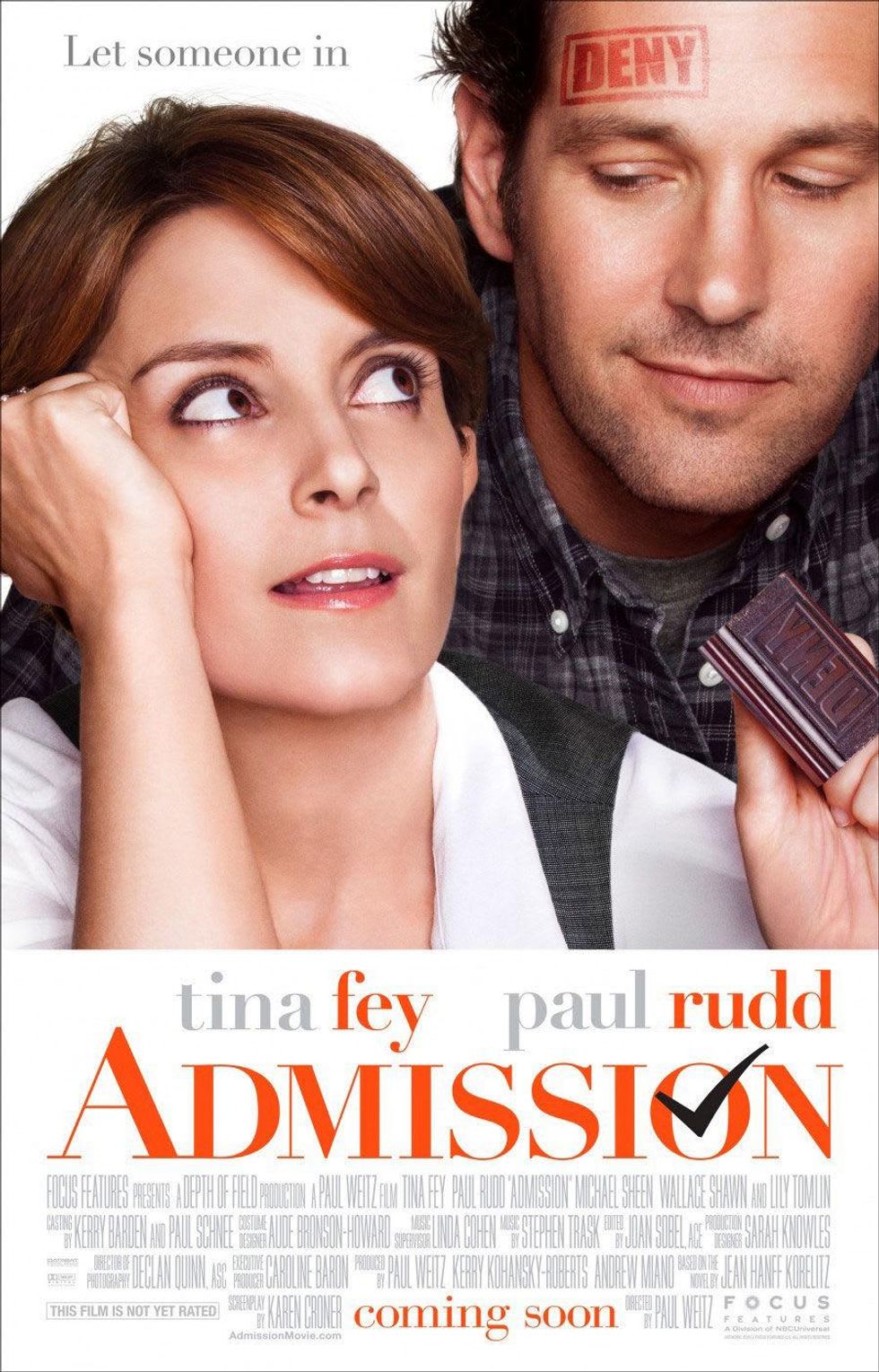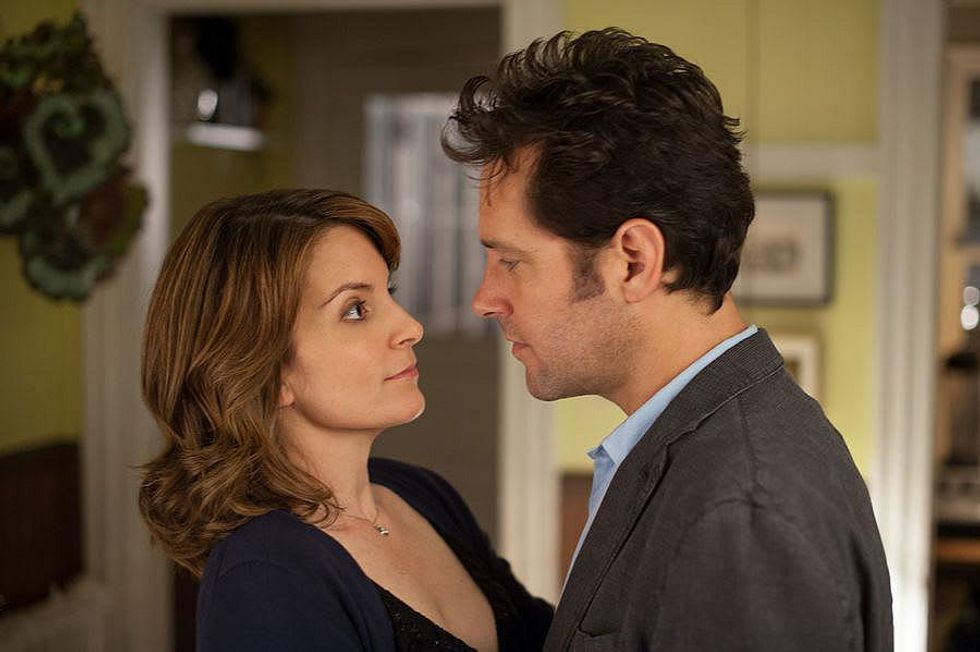Waste of comedic talent
Despite the talent, Admission fails to make the grade as a comedy
You’d be hard-pressed to find two funnier people in show business than Tina Fey and Paul Rudd. Fey has earned much acclaim for her work on Saturday Night Live and 30 Rock, although her film career has been hit-and-miss. Rudd has been a go-to comedy actor for close to 20 years, starring in such films as Clueless, Anchorman and I Love You, Man.
So it was only a matter of time before this power duo got together. The only thing that couldn’t have been predicted was that once that union was achieved, the powers that be would neuter their comedy skills in a lackluster attempt at a dramedy.
That is what Admission really is, misleading TV commercials notwithstanding. Fey is Portia Nathan, an admissions officer at Princeton, and so a person with enormous power over the future of thousands of teenagers. Rudd is John Pressman, leader of an alternative school who has one promising student he really wants to bring to Portia’s attention — and not just for academic reasons.
Why put comedy legends like Tina Fey, Paul Rudd and Lily Tomlin together if you’re not going to let them cut loose now and again?
That’s the main thrust of the film, but it’s far from the only focus. Admission is based on the novel by Jean Hanff Korelitz, and it feels like director Paul Weitz and writer Karen Croner wanted to cram in every little subplot from the book, no matter how relevant to the overall structure of the film.
And so we’re treated to not just the ever-evolving complicated relationship between Portia, John and that student, Jeremiah (Nat Wolff), but also Portia’s complicated relationship with her mother (Lily Tomlin), John’s complicated relationship with his adopted son, Portia’s complicated relationship with her ex-boyfriend and the woman for whom he left her, and, last but not least, Portia’s rivalry with a co-worker.
What Weitz and Croner fail to realize is that there's no way you can adequately pay off all of those stories over the course of a two-hour movie like you can in a 464-page book. Editing non-essential material is crucial when adapting a book to the screen, and not doing so ends up being the film’s biggest mistake.
Another mistake is tone. If all of this were madcap and zany, it’d be one thing — and a more entertaining one at that. But most of the stories are played if not straight up, then with a more dramatic tinge than most people might expect. It’s not as if people like Fey, Rudd and Tomlin can’t emote with the best of them, but why put comedy legends together if you’re not going to let them cut loose now and again?
Despite that lack, all of the main actors live up to their lofty standards, mostly because it’s impossible not to like them no matter what the film calls for them to do. Especially welcome is Tomlin, who steals every scene she’s in thanks to her wry wit and skill at nailing just the right facial expression for a particular moment.
But Admission doesn’t reach its full potential due to its scattershot approach to storytelling, where everything is treated as important, and therefore nothing is. Although the final product isn’t terrible, it’s still a waste of talent.




 Crystal Charity Ball 2024 chairman Cheryl Joyner and Richard Joyner.
Photo by Ashley Gongora
Crystal Charity Ball 2024 chairman Cheryl Joyner and Richard Joyner.
Photo by Ashley Gongora